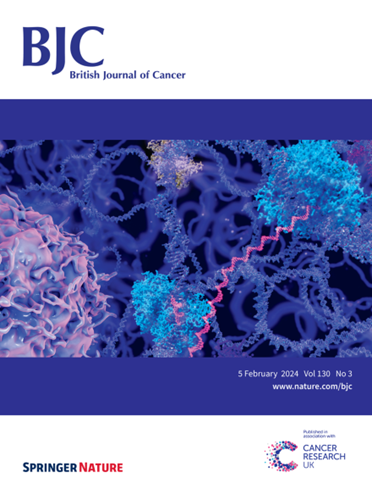The αvβ6 integrin specific virotherapy, Ad5NULL-A20.FCU1, selectively delivers potent “in-tumour” chemotherapy to pancreatic ductal adenocarcinoma
IF 6.4
1区 医学
Q1 ONCOLOGY
引用次数: 0
Abstract
Pancreatic ductal adenocarcinoma (PDAC) represent an unmet clinical need. Approximately 90% of PDACs express high levels of αvβ6 integrin. We have previously described Ad5NULL-A20, an adenovirus vector with ablated native means of cell entry and retargeted to αvβ6 integrin by incorporation of an A20 peptide. Here, we incorporate suicide genes FCY1 and FCU1 encoding for cytosine deaminase (CDase) or a combination of CDase and UPRTase, capable of catalysing a non-toxic prodrug, 5-FC into the chemotherapeutic 5-FU and downstream metabolites, into replication-deficient Ad5 and Ad5NULL-A20. We show that Ad5NULL-A20 enables the transfer of suicide genes to αvβ6 integrin-positive PDAC cells which, in combination with 5-FC, results in cell death in vitro which is further mediated by a bystander effect in non-transduced cells. Intratumoural delivery of Ad5NULL-A20.FCU1 in combination with intraperitoneal delivery of 5-FC further results in tumour growth inhibition in a cell line xenograft in vivo. Using clinically-relevant 3D organoid models, we show selective transduction and therapeutic efficacy of FCU1 transgenes in combination with 5-FC. Taken together these data provide the preclinical rationale for combined Ad5NULL-A20.FCU1 plus 5-FC as a promising targeted therapy to mediate “in-tumour chemotherapy” and merits further investigation for the treatment of PDAC patients.

αvβ6整合素特异性病毒疗法Ad5NULL-A20.FCU1可选择性地对胰腺导管腺癌进行有效的 "瘤内 "化疗。
背景:胰腺导管腺癌(PDAC)是一项尚未得到满足的临床需求。大约 90% 的 PDAC 表达高水平的 αvβ6 整合素。我们以前描述过一种腺病毒载体 Ad5NULL-A20,它具有消减细胞进入的原生途径,并通过加入 A20 肽重新靶向 αvβ6 整合素。方法:在这里,我们将编码胞嘧啶脱氨酶(CD酶)或CD酶和UPRT酶组合的自杀基因FCY1和FCU1整合到复制缺陷型Ad5和Ad5NULL-A20中:结果:我们发现 Ad5NULL-A20 能够将自杀基因转移到 αvβ6 整合素阳性的 PDAC 细胞中,与 5-FC 结合使用可导致体外细胞死亡,而未转染细胞中的旁观者效应会进一步介导细胞死亡。Ad5NULL-A20.FCU1的瘤内给药与5-FC的腹腔给药相结合,进一步抑制了体内细胞系异种移植的肿瘤生长。利用临床相关的三维类器官模型,我们展示了 FCU1 转基因与 5-FC 结合使用的选择性转导和疗效:总之,这些数据为 Ad5NULL-A20.FCU1 联合 5-FC 作为一种很有前景的靶向疗法提供了临床前依据,值得进一步研究用于治疗 PDAC 患者。
本文章由计算机程序翻译,如有差异,请以英文原文为准。
求助全文
约1分钟内获得全文
求助全文
来源期刊

British Journal of Cancer
医学-肿瘤学
CiteScore
15.10
自引率
1.10%
发文量
383
审稿时长
6 months
期刊介绍:
The British Journal of Cancer is one of the most-cited general cancer journals, publishing significant advances in translational and clinical cancer research.It also publishes high-quality reviews and thought-provoking comment on all aspects of cancer prevention,diagnosis and treatment.
 求助内容:
求助内容: 应助结果提醒方式:
应助结果提醒方式:


